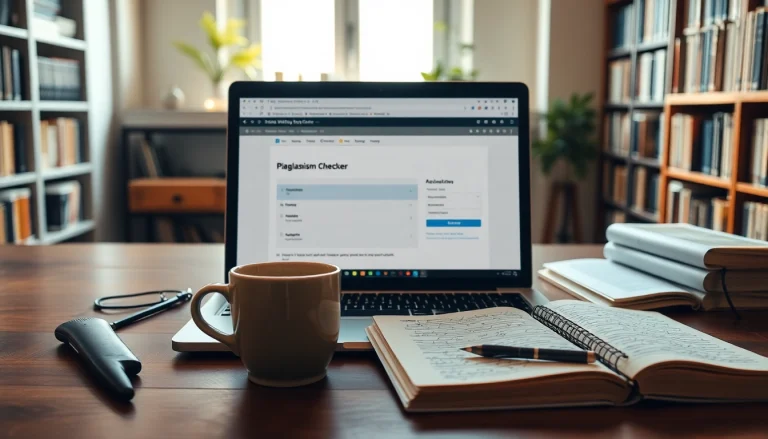Understanding NVQs and Their Importance
National Vocational Qualifications (NVQs) play a crucial role in the educational and professional development landscape across the UK. Designed to reflect the skills, knowledge, and competencies required in various job roles, NVQs enable learners to validate their work experience through formal certification. In this article, we’ll explore NVQs in detail, including their levels, significance, and how NVQ sample answers can support students on their journey to success.
What Is an NVQ?
An NVQ is a work-based qualification that assesses a candidate’s competence in a specific role or profession. Unlike traditional academic qualifications, NVQs are not based on exams but rather on the practical skills and knowledge demonstrated in a work setting. Candidates are typically required to present portfolios comprising evidence such as workplace observations, witness statements, and reflective accounts.
The Levels of NVQs Explained
NVQs are categorized into five levels, each reflecting a specific range of responsibilities and expertise:
- Level 1: Basic skills for simple work activities, suitable for entry-level roles.
- Level 2: More responsible roles requiring a greater level of knowledge and practical skills, often equivalent to GCSE or high school qualifications.
- Level 3: Advanced vocational skills and knowledge necessary for supervisory roles, similar to A-levels.
- Level 4: Management and advanced technical or professional roles that demand specific expertise.
- Level 5: Senior management capabilities that require strategic planning and management skills.
The Role of NVQ Sample Answers
NVQ sample answers serve as valuable resources for learners preparing for their assessments. These samples help students understand how to formulate their responses effectively and what assessors expect regarding structure and content. Moreover, engaging with sample answers can enhance learning by illustrating best practices in answering NVQ questions.
How to Choose the Right NVQ Sample Answers
Criteria for Selecting Sample Answers
When it comes to choosing appropriate NVQ sample answers, consider the following criteria:
- Relevance: Ensure that the sample answers pertain to your specific NVQ level and sector. This relevance enhances the applicability of the information.
- Quality: Choose samples that are well-structured, clear, and comprehensive. High-quality answers should offer a breakdown of the question and demonstrate how to provide evidence effectively.
- Feedback: Utilize samples accompanied by feedback or assessment guidelines. Such resources can help you understand common pitfalls and areas for improvement.
Finding Quality Resources Online
Finding quality NVQ sample answers online requires diligence. Start by searching reputable educational websites, official NVQ providers, or platforms that specialize in vocational qualifications. Three reliable methods to locate sample answers include:
- Academic Websites: Look for institutions that offer NVQ courses. Such organizations often provide example assignments to demonstrate the expected quality and depth.
- Forums and Study Groups: Online communities can be excellent sources of shared resources where other learners post their successes or challenges, revealing effective NVQ sample answers.
- NVQ-Specific Platforms: Websites dedicated to NVQ resources usually have extensive repositories of examples across various subjects and levels.
Avoiding Plagiarism with Sample Answers
Using NVQ sample answers responsibly is crucial to avoid plagiarism. Here are several strategies to ensure ethical usage:
- Understand: Make sure you comprehend the sample answer thoroughly before using it to inform your response.
- Paraphrase: Instead of copying the sample word-for-word, paraphrase and apply the same principles in your unique context.
- Combine Resources: Use multiple sample answers to gather ideas, then synthesize and create your own approach based on their insights.
Preparing for Your NVQ Assessments
Study Techniques for NVQ Success
Preparation is key to succeeding in NVQ assessments. Here are effective study techniques tailored for NVQ learners:
- Set Clear Goals: Define what you want to achieve from each study session and focus on specific topics or skills.
- Create a Timeline: Develop a study schedule that allocates time for each aspect of the assessment, ensuring all subjects are covered.
- Practice Active Learning: Engage with the material through discussions, practice assessments, and teaching concepts to peers.
Utilizing NVQ Sample Answers Effectively
When using sample answers, take the following steps to maximize their utility:
- Break Down the Structure: Analyze the layout and content of the sample answers to learn how to structure your responses logically.
- Identify Key Themes: Focus on recurring themes or questions within your NVQ program to inform your answers effectively.
- Reflect on Personal Experience: Relate the insights from sample answers back to your experiences, ensuring your responses are contextually sound and original.
Common Challenges in NVQ Assessments
NVQ learners often encounter several challenges, including:
- Understanding Assessment Criteria: Difficulties in correctly interpreting what is required in assignments and portfolios can hinder performance.
- Managing Time Effectively: Balancing work, studies, and personal commitments can lead to insufficient preparation.
- Dealing with Feedback: Learning how to utilize constructive criticism from assessors can be daunting.
Real-Life Applications of NVQs
Industry Relevance of NVQ Qualifications
NVQs are integrated across various industries, proving their practical significance. Some areas where NVQs are particularly relevant include:
- Healthcare: NVQs in health and social care ensure that providers meet regulatory standards while equipping practitioners with essential skills.
- Construction: Industry-specific NVQs guarantee that workers possess the necessary skills to perform safely and competently on-site.
- Business Administration: NVQs in this sector provide recognition of skills necessary for effective management and operation of businesses.
Success Stories: Achieving Career Milestones
Many professionals have used NVQs to transform their careers. Consider the example of a healthcare assistant who completed an NVQ Level 2 in Health Care. This qualification facilitated a promotion to a senior support role, leading to increased responsibilities and better pay. Such success stories highlight how NVQs can be powerful stepping stones to enhanced career opportunities.
Networking Within the NVQ Community
Networking within the NVQ community can be beneficial. Attending industry seminars, workshops, and local educational events can help build connections that offer mentorship, advice, and job opportunities. Many NVQ candidates find that joining professional associations or online groups provides ongoing support and resources.
Feedback and Improvement from NVQ Assessments
Analyzing Feedback from Assessors
Understanding and implementing feedback from assessors is vital for continuous improvement. Here’s how learners can analyze and apply feedback effectively:
- Seek Clarity: If feedback is unclear, don’t hesitate to ask your assessor for specific examples or further explanation.
- Document Feedback: Create a record of feedback to keep track of progress and areas needing improvement through your NVQ journey.
- Set Actionable Goals: Based on the feedback received, establish clear objectives to address weaknesses in future assessments.
Strategies for Continuous Improvement
To continuously improve and excel in NVQs, consider the following strategies:
- Regular Self-Assessment: Periodically review your skills and knowledge against NVQ standards to identify personal strengths and weaknesses.
- Engage in Continuous Learning: Participate in relevant workshops, online courses, or literature to enhance understanding and skills related to your role.
- Seek Peer Support: Collaborate with fellow NVQ candidates to exchange insights and study resources.
Leveraging Feedback for Future Assessments
Utilizing feedback from previous assessments can significantly influence future success. Consider these steps:
- Reflect on Past Experiences: Identify patterns in feedback that suggest recurring challenges or strengths. Use this knowledge to create targeted strategies for upcoming assessments.
- Tailor Study Habits: Modify your study techniques based on past performance, focusing more on areas where feedback indicated need for improvement.
- Practice Simulated Assessments: Prepare for future NVQs by undertaking timed assessments to emulate real examination conditions and address specific feedback.























+ There are no comments
Add yours